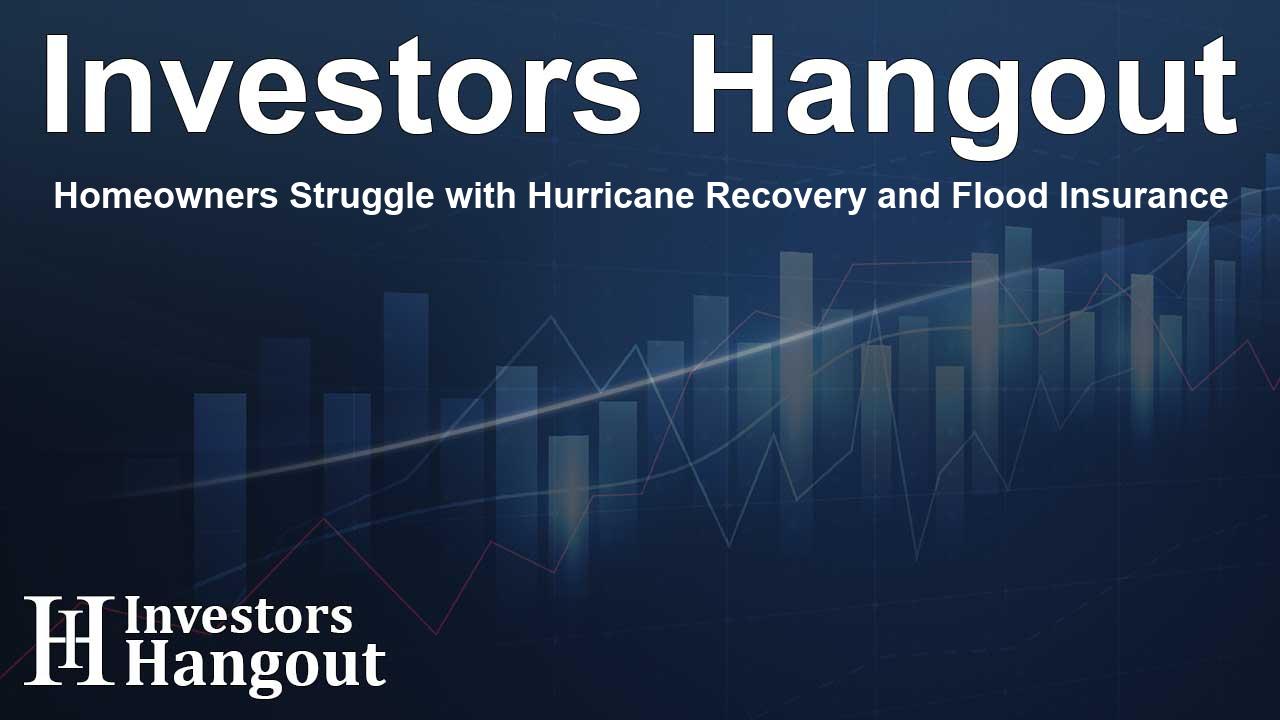Homeowners Struggle with Hurricane Recovery and Flood Insurance

Hurricane Helene's Impact on Homeowners
In the wake of a devastating hurricane that has swept through the Southeastern U.S., many homeowners are left facing a daunting challenge: how to reparably recover from catastrophic flood damage. Hurricane Helene, which was classified as a Category 4 storm, unleashed a relentless downpour, overwhelming areas and leaving destruction in its wake.
As the storm made landfall and surged through various states, it spilled trillions of gallons of rainwater, causing unprecedented flooding. Unfortunately, the tragic toll from the storm has exceeded 200 lives, marking it as one of the deadliest hurricanes to confront the U.S. mainland since the infamous Hurricane Katrina.
Homes and Communities Devastated
Particularly hard-hit regions, including parts of Western North Carolina and surrounding communities, have experienced severe flooding that obliterated infrastructure, homes, and access to utilities. Residents of the area have been left reeling as they confront damage that many did not anticipate or prepare for. Homes nestled within forested neighborhoods that once stood strong are now marked by fallen trees and shattered rooftops, remnants of the storm's fury.
For instance, one resident recounted a harrowing moment when a massive tree fell on her home, just missing the structure but still resulting in roof damage and a flooded basement. This story is not unique and reflects the ongoing struggles homeowners are encountering across affected areas. With no access to cell service or the internet immediately following the storm, many residents faced delays in filing insurance claims—putting further strain on their recovery process.
Challenges with Insurance Coverage
While general home insurance may cover damage caused by wind, many homeowners are discovering the harsh reality that flood damage is categorized separately. As a result, those like Julianne Johnson, who lack flood insurance, are struggling to understand how they will finance the extensive repairs required after Helene wreaked havoc on their properties.
The fact is, most residential home insurance policies do not include flood coverage, which has become a major issue for many. Historically, the Federal Emergency Management Agency (FEMA) has been the primary provider of flood insurance through the National Flood Insurance Program. Unfortunately, many areas significantly impacted by Helene may not have adequate flood insurance protection.
Insurance Gaps and Financial Burden
FEMA’s recent statistics reveal a concerning number of policies in North Carolina, and much of that coverage is concentrated along the coast, leaving inland communities vulnerable. Flood insurance experts underscore that without proper coverage, many residents may fall into financial distress, and for some, the heartbreaking outcome could be foreclosure or bankruptcy.
Mark Friedlander from the Insurance Information Institute highlighted that insurance losses from Helene are anticipated to range between $5 billion and $8 billion, which is notably less severe compared to previous storm losses. It’s a reminder of the critical gap in flood insurance across many communities, particularly in the inland regions, where flood damage can still occur despite being less obvious compared to coastal areas.
Moving Forward: The Need for Change
The devastation brought forth by Hurricane Helene raises important questions about the future of flood insurance coverage and homeowner recovery strategies. Advocates like Amy Bach emphasize the necessity for a national disaster insurance program that makes insurance accessible and comprehensive, similar to what the Affordable Care Act achieved for health insurance.
North Carolina is already taking proactive steps, requiring insurance agents to educate themselves about flood insurance and its implications. Such measures aim to empower homeowners with knowledge about their insurance options and promote better preparedness for future disasters.
Frequently Asked Questions
What happened during Hurricane Helene?
Hurricane Helene was a Category 4 storm that caused significant flooding and destruction across multiple states, resulting in over 200 fatalities.
How did the storm impact homeowners?
Homeowners faced severe damage to their properties, with many struggling to recover due to inadequate insurance coverage against flood damage.
Why isn't flood damage covered by typical home insurance?
Home insurance generally does not cover flood-related damages, which are categorized separately and usually require specific flood insurance policies.
What resources are available for flood insurance?
The National Flood Insurance Program, managed by FEMA, is the primary provider of flood insurance for residential properties in the U.S.
What steps can homeowners take to prepare for future flooding?
Homeowners should educate themselves about their insurance coverage, consider obtaining flood insurance, and stay informed about their local flood risks.
About Investors Hangout
Investors Hangout is a leading online stock forum for financial discussion and learning, offering a wide range of free tools and resources. It draws in traders of all levels, who exchange market knowledge, investigate trading tactics, and keep an eye on industry developments in real time. Featuring financial articles, stock message boards, quotes, charts, company profiles, and live news updates. Through cooperative learning and a wealth of informational resources, it helps users from novices creating their first portfolios to experts honing their techniques. Join Investors Hangout today: https://investorshangout.com/
Disclaimer: The content of this article is solely for general informational purposes only; it does not represent legal, financial, or investment advice. Investors Hangout does not offer financial advice; the author is not a licensed financial advisor. Consult a qualified advisor before making any financial or investment decisions based on this article. The author's interpretation of publicly available data shapes the opinions presented here; as a result, they should not be taken as advice to purchase, sell, or hold any securities mentioned or any other investments. The author does not guarantee the accuracy, completeness, or timeliness of any material, providing it "as is." Information and market conditions may change; past performance is not indicative of future outcomes. If any of the material offered here is inaccurate, please contact us for corrections.